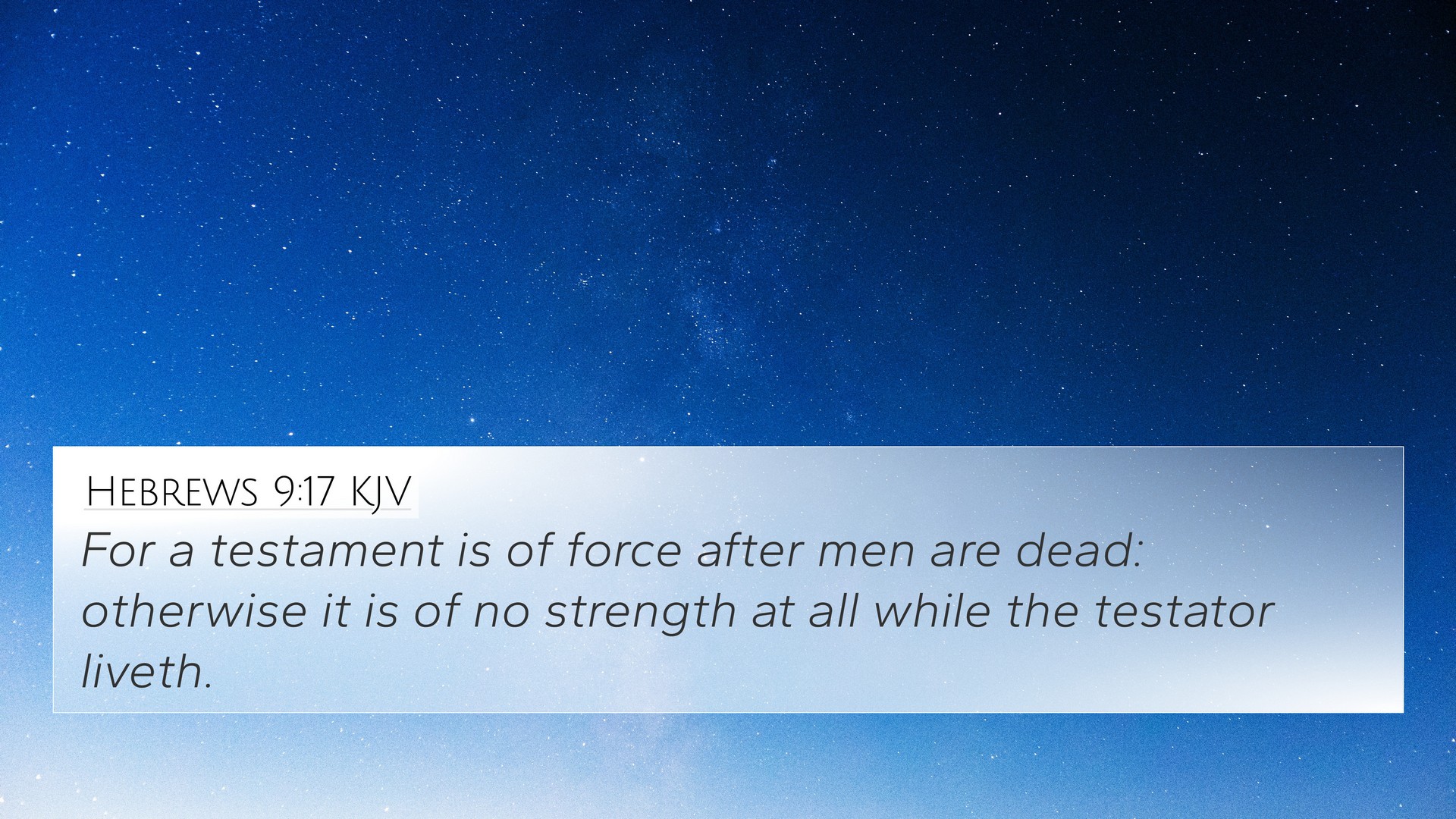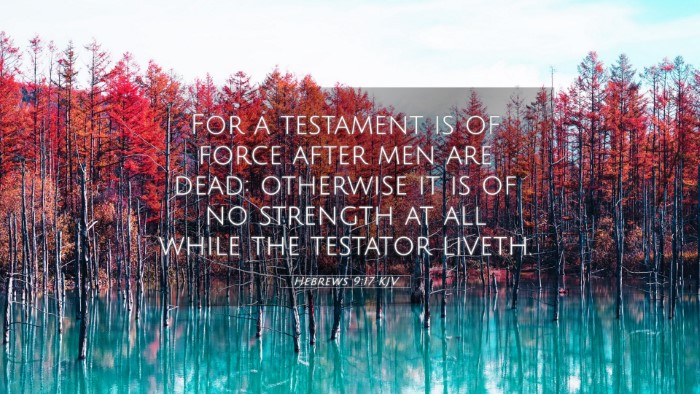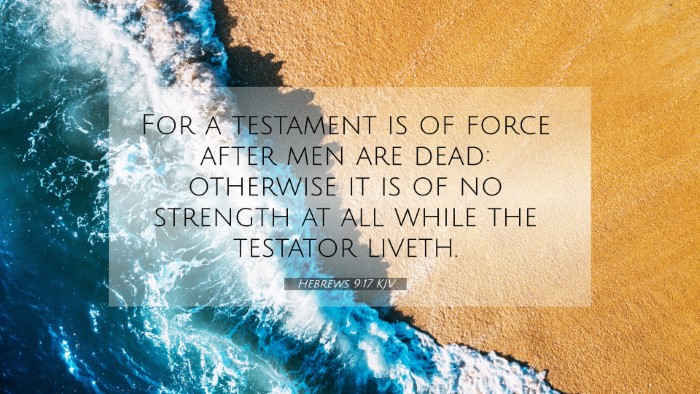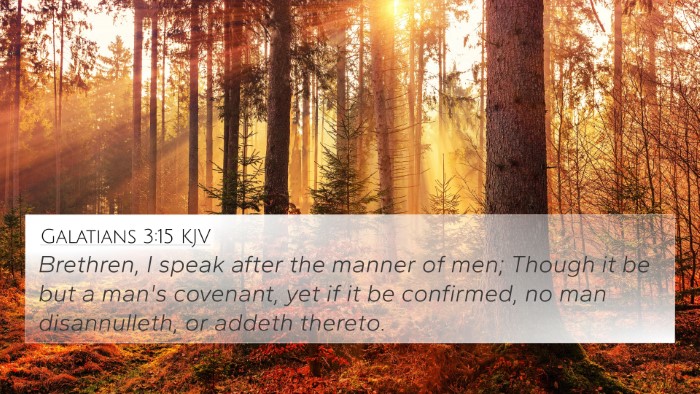Old Testament
Genesis Exodus Leviticus Numbers Deuteronomy Joshua Judges Ruth 1 Samuel 2 Samuel 1 Kings 2 Kings 1 Chronicles 2 Chronicles Ezra Nehemiah Esther Job Psalms Proverbs Ecclesiastes Song of Solomon Isaiah Jeremiah Lamentations Ezekiel Daniel Hosea Joel Amos Obadiah Jonah Micah Nahum Habakkuk Zephaniah Haggai Zechariah MalachiVerse
Hebrews 9:1 Hebrews 9:2 Hebrews 9:3 Hebrews 9:4 Hebrews 9:5 Hebrews 9:6 Hebrews 9:7 Hebrews 9:8 Hebrews 9:9 Hebrews 9:10 Hebrews 9:11 Hebrews 9:12 Hebrews 9:13 Hebrews 9:14 Hebrews 9:15 Hebrews 9:16 Hebrews 9:17 Hebrews 9:18 Hebrews 9:19 Hebrews 9:20 Hebrews 9:21 Hebrews 9:22 Hebrews 9:23 Hebrews 9:24 Hebrews 9:25 Hebrews 9:26 Hebrews 9:27 Hebrews 9:28




